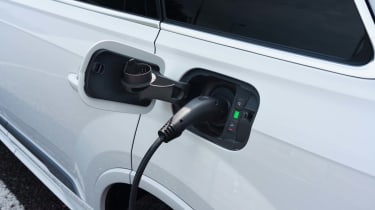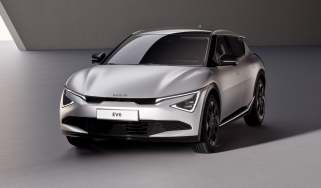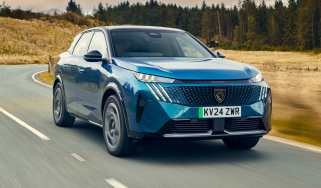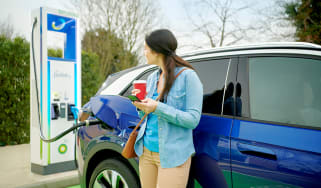Audi Q7 hybrid MPG & CO2 emissions
For such a big car, the Audi Q7 TFSI e promises low fuel bills and tailpipe emissions, but its figures are still on the high side for an electrified model
| Fuel economy | CO2 emissions | Electric range | Wallbox charge time |
|---|---|---|---|
| 105-109mpg | 58-67g/km | 28-29 miles | c.2hrs 30mins (0-100%, 7kW) |
There's no denying the Q7 TFSI e has impressive claimed fuel-economy and CO2 emissions figures, especially for a car of its performance and size. As ever with a plug-in hybrid, there's the caveat that owners need to plug in regularly if they're to stand a chance of approaching the official numbers.
Being that a full charge takes just a couple of hours using a home wallbox, there should be no issue topping up overnight. During the day, there are a number of driving modes to choose from that all help maximise the potential of Audi’s hybrid technology. These include one for battery-only driving, one for petrol-only driving and one for making the best of both sources.
All three have benefits. For example, saving the battery can mean there's more charge for stop/start urban driving (assuming that's part of your journey), which is one of the times fossil-fuel-powered cars are at their least efficient. Also, the hybrid mode can use sat-nav data and live traffic information to decide on the most efficient way to deploy electricity and petrol.
In truth, the system has room to improve. When driving, the car will vibrate its accelerator pedal as a reminder to lift off and allow the regenerative braking to send energy back to the battery pack – which is good. Unfortunately, even though the Q7 can recognise when a lower speed limit is approaching, the system isn’t smart enough to again warn the driver and engage the regenerative braking.
Audi Q7 hybrid MPG & CO2 emissions
Despite all Audi Q7 hybrids getting rather lofty official economy and emission figures (up to a maximum of 109mpg and a low of 58g/km respectively), they don’t compare all that well to the claims of other plug-in hybrids. Most of this is due to the Q7 being quite heavy compared to smaller and lighter plug-ins such as the Hyundai Ioniq and Toyota Prius.
Audi did see fit to offset that extra bulk with a large 17.3kWh battery pack. Even so, in our experience the Q7 is an efficient car for the majority of journeys – especially a commute on a mixture of 30mph and 60mph roads. If low emissions and high fuel economy are of the utmost importance, then entry-level Sport trim is the best option, while S Line comes a close second. Black Edition, Competition and Vorsprung all return slightly higher figures (albeit similar to one another) due to their larger alloy wheels.



